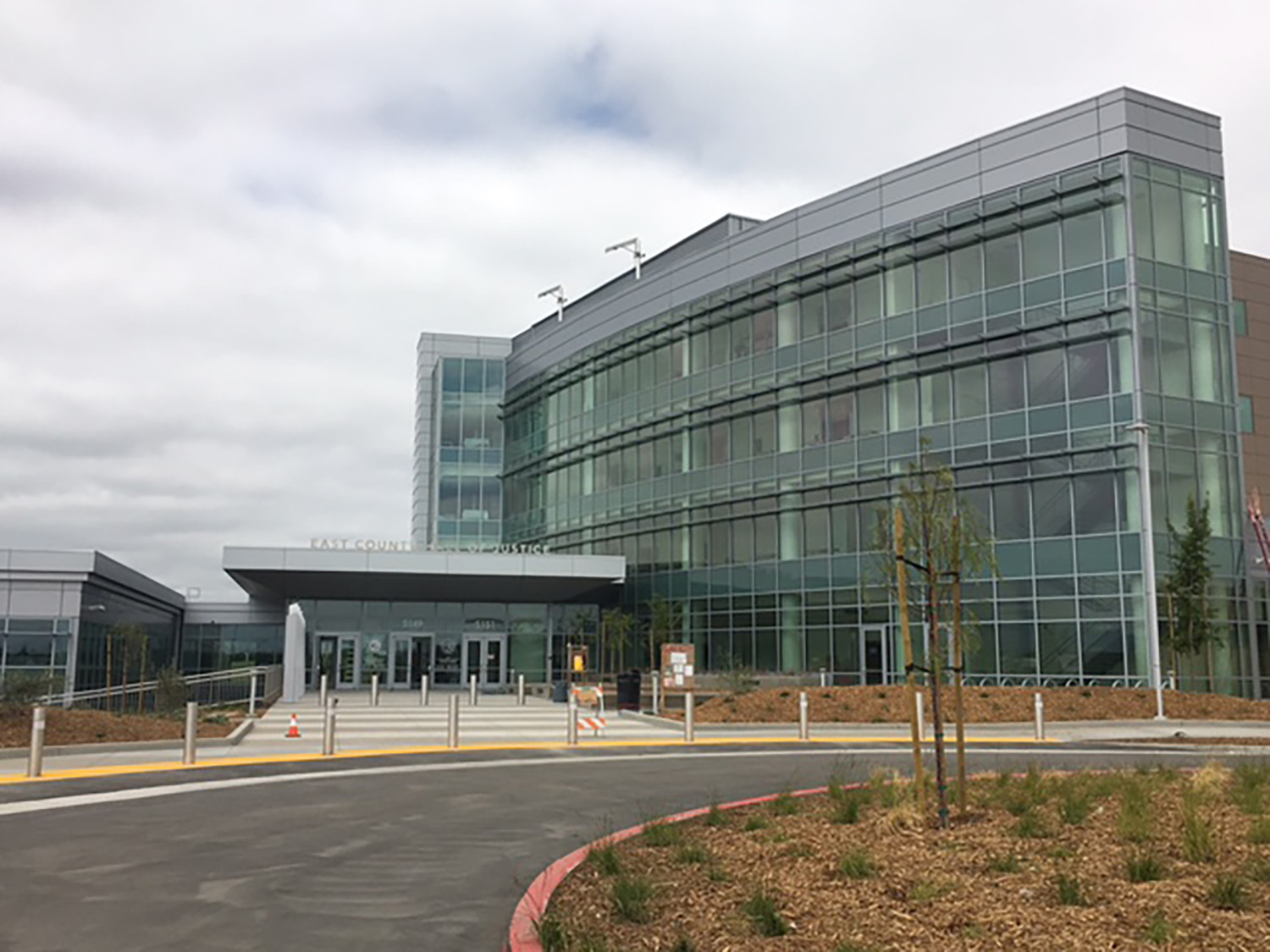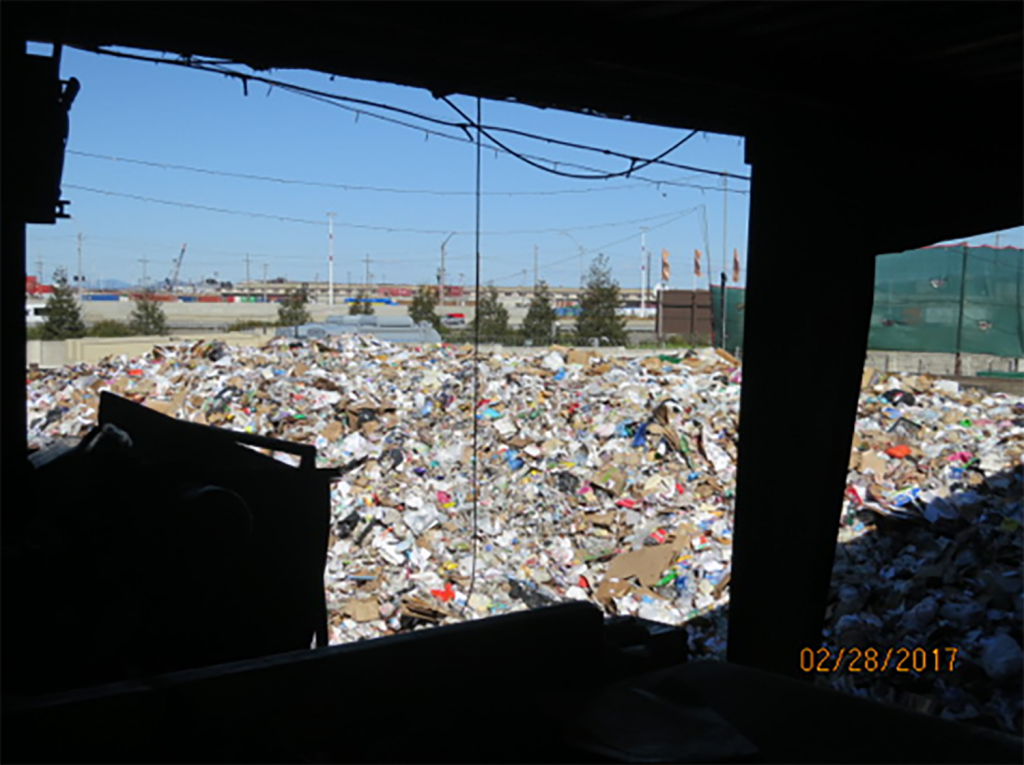In July, the Alameda County Superior Court system moved most criminal arraignments in the county to a new $147.5 million courthouse in Dublin, far from the region’s main population centers. The plan immediately sparked outrage, including from Oakland Mayor Libby Schaaf, who argued that it would further erode court access for the East Bay’s poorest people to the criminal justice system.
Records also show that low-income residents, many of whom live in Oakland and now must travel to the east part of the county for criminal cases, are the same people who largely paid for the construction of the new Dublin courthouse, which is a mile away from the Dublin BART station.
In fact, a substantial portion of costs for the new East County Hall of Justice—as well as most recently constructed courthouses in California—have been paid through hikes on fines and fees for criminal citations, including many minor infractions and traffic tickets. According to a January 2016 report by the nonpartisan state Legislative Analyst’s Office, about one-sixth of all fine and fee revenue collected in the state goes to court construction costs.
“The fines that are related to coming into the criminal system are outrageous,” said Alameda County Public Defender Brendon Woods, who has been one of the most vocal opponents of the plan to hold countywide arraignments in Dublin. “The people who have the least are in some ways required to spend the most.”
A 2016 report by a coalition of legal aid organizations, including the Lawyers’ Committee for Civil Rights of the San Francisco Bay Area and the East Bay Community Law Center, found that California’s structure of fines can lead to devastating impacts on poor and minority communities. Fines and fees are charged without regard to who can afford to pay, leading to late fees piling up for already struggling people who then can lose their driver’s license and their transportation to work and can even wind up in jail.
According to records, the state Judicial Council and Alameda County Superior Court together contributed about $122 million toward the Dublin courthouse project, with about half coming from the state and the other half coming from the local court system. Most of that money was either raised through fines and fees or loans that will be repaid with future fine and fee revenue.
As part of its contribution to the new Dublin courthouse, Alameda County courts, which have long claimed that they’re financially strapped and have been forced to cut back on court personnel and access to the courts, spent $20.8 million of its own funds. All of that money came from civil assessment fees—a significant portion of which was levied on low-income residents, many of whom live in Oakland. These fees, imposed for minor infractions like a broken taillight or failure to report a change of address, are often charged to people who can’t afford to pay. The court is also paying $2 million per year from future revenue derived from these same revenue sources to the state Judicial Council until 2022 to repay a $40 million loan for the Dublin courthouse’s construction costs.
Another $50 million for the courthouse was provided by the state and was raised through SB 1407, a bill authored in 2008 by then-state Sen. Don Perata. That legislation hiked state-imposed civil filing fees as well as fines and fees for traffic violations, infractions, misdemeanors, and felonies to generate $250 million annually. Alameda County courts are paying another $2.5 million per year raised through these fee hikes toward the same $40 million loan.
The numerous fines and fees tacked onto each ticket results in what would be a $100 fine costing $490 after fees are added, including $50 for court construction from SB 1407. Late fees, including the civil assessment fee, can make that same $100 ticket cost $815.
And while the state ostensibly was raising money for courthouses when it passed SB 1407, it’s been using the fees to close its own budget gap. State lawmakers raided the courthouse construction funds as the state’s fiscal outlook worsened during the Great Recession. According to the Judicial Council, $1.8 billion in court construction funds have been redirected to address the state’s budget shortfall since 2009. While the Judicial Council swiftly approved 41 courthouse projects in 34 counties after the bill passed, 11 of the planned courthouse projects have been delayed indefinitely due to lack of funds.
The new Dublin courthouse—which was originally built to primarily serve east county residents—also comes at a time when there have been brutal budget cuts and drastic reductions in court access throughout the state. In Alameda County, the court started the last fiscal year with a $5 million budget deficit, leading to the complete closure of the court system for a week in December, cutting clerk’s office hours in January, and suspending probate examiner’s phone hours in April. The county court system has also been reeling from a multimillion-dollar scandal involving a new computer system that doesn’t work properly.
In addition, state allocations for Alameda County Superior Court have been cut for eight straight years, plummeting from about $125 million in the 2007-08 fiscal year to about $76 million in the 2016-17 fiscal year, according to Morris Jacobson, who is the county’s presiding judge and who made the decision to move all criminal arraignments to the new Dublin courthouse. While the state has taken steps to restore funding to education and other services cut in the midst of the recession, courts have remained underfunded.
“While we once had about 950 employees, we now have about 650,” Jacobson said in June as criticism of the new courthouse mounted. “We literally do not have—nor can we afford to hire—enough courtroom clerks, court reporters, and other staff to operate our courts.”
Those cuts are a substantial part of the reason that Jacobson said it was necessary to move most of the county’s arraignments to the new Dublin courthouse, across the street from the county’s main jail, Santa Rita. As of July, all criminal proceedings from the Hayward courthouse moved to the new Dublin courthouse as well as most arraignments from Oakland. Because it’s the biggest city and has the highest crime rate, most of the county’s criminal cases originate in Oakland.
Arraignments are the first court appearance by a criminal defendant and are often held in quick succession. Santa Rita holds about 4,000 inmates, about half of whom haven’t been sentenced and are in various stages of criminal proceedings. Jacobson said busing inmates from Santa Rita to Oakland leads to delays in the courtrooms as buses get bogged down in heavy traffic on Interstate 580. But Woods and Mayor Schaaf have noted that the new court system setup now forces families of defendants to travel to Dublin from Oakland to attend hearings.
How much the court can save this way isn’t entirely clear, however. At a July 13 meeting of the Alameda County Board of Supervisors Public Protection Committee, Jacobson said delays from inmates arriving late after being stuck in traffic cost the court about $200,000 a year in overtime.
He argued the Alameda County Sheriff’s Office, which operates the jails, should have cost savings as well. But at the same meeting, Assistant Sheriff Brett Keteles said the savings will be negligible, because the sheriff’s office will still need to run nearly the same number of buses for other appearances in Oakland.
Woods questioned whether moving the arraignments will save any money at all. He said that in the first weeks of the new system, he’s been finding many arraignments scheduled in Dublin are immediately continued and the next hearing is held in Oakland anyway.
“This idea of having the arraignments there would be a cost savings really isn’t true,” Woods said.
Meanwhile, holding the arraignments in Dublin has left many defendants’ family members with the difficult choice of either not attending or dealing with time-consuming and expensive transportation. Woods pointed out that there is still a way for well-heeled residents of Oakland to buy access: If they pay bail, they can have their arraignment in Oakland.


